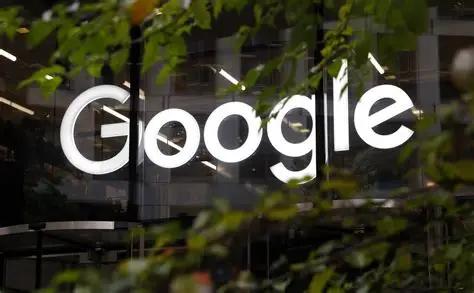
On August 18th, the Australian Competition and Consumer Commission (ACCC) announced that it had filed a lawsuit against Google, a subsidiary of Alphabet. The ACCC has accused Google of violating competition regulations in the agreements it reached with Australian telecom operators Telstra and Optus regarding the pre-installation of Google's search service in Android phones. The ACCC also stated that Google has cooperated with the regulatory investigation, admitted responsibility, and agreed to jointly submit documents with the committee to the federal court, acknowledging that it should pay a total fine of 55 million Australian dollars (approximately 35.8 million US dollars).
The lawsuit documents of the Australian Competition and Consumer Commission (ACCC) reveal that Google signed secret agreements with Australian telecommunications giants Telstra and Optus to force Google's search engine to be pre-installed on Android devices sold between 2019 and 2021, completely blocking its competitors.
In exchange, Australian telecom operators directly take a share of the advertising revenue generated by users' use of Google search, transforming infrastructure providers into "distributors" in the monopolistic interest chain. This meticulously designed monopoly game began in 2017. An ACCC investigation reveals that Google systematically stifles competition in the search engine market through contractual arrangements with mobile phone manufacturers and Australian telecommunications providers.
In the face of accusations, Google demonstrated a textbook "art of compromise" : admitting responsibility and agreeing to pay a $55 million (US $35.8 million) fine, but refusing to fully accept the regulatory charges. Ironically, the "rectification" commitment letter signed by Google only agreed to remove "certain" pre-installation restrictions - the monopolistic nature remained intact.
Gina Cass Gottlieb, the chairperson of the ACCC, was incisive: "Restricting competitive behavior means consumers have fewer choices and higher costs." A fine of 55 million is just a drop in the bucket for Google, which has an annual revenue of 257 billion US dollars (accounting for only 0.003% of its annual revenue).
The harm of monopoly agreements far exceeds imagination. As AI technology is reshaping the landscape of the search industry, Google's pre-installation hegemony directly strangles emerging competitors in their infancy. Even advanced AI search tools find it difficult to break through the factory setup barriers jointly built by Google and telecom operators. Gottlieb warned: "These restrictions occur at a critical moment when AI search tools are completely transforming the way information is obtained."
The more profound impact lies in the suffocation of market innovation momentum. When tech giants can lock in the market through pre-installation agreements, the pace of the technological revolution is bound to slow down - consumers become the ultimate victims and will always be cut off from better services.
The lawsuit in Australia is not an isolated action. On August 12th, the Australian Federal Court just ruled that the Apple and Google app stores were illegal. The EU's Digital Markets Act, the revision of South Korea's antitrust law, and a series of lawsuits in the US are all advancing simultaneously, and the global regulatory iron curtain has already fallen.
The compromise of Australian telecom operators is even more symbolic: Telstra, Optus and TPG have promised not to sign new exclusive agreements and are allowed to freely configure search services. Gottlieb emphasized: "The cost of post-event remediation is too high. Only preventive regulation can eradicate monopolies."
Google's "accept punishment but not admit guilt" stance has exposed the survival logic of tech giants - 55 million Australian dollars is merely the operating cost to maintain a monopoly. When asked if they would really change the business model, the official statement of a Google spokesperson was meaningful: "We are very glad to have solved this problem."
Regulatory authorities have accepted the commitment letter from telecommunications operators, allowing devices to freely configure search services. Gottlieb said of this: "With the popularization of AI search tools, consumers can finally try different search services." This marks the end of Google's privileges.
On a broader battlefield, the European Union passed the Digital Markets Act to force Google to open up its search engine options, South Korea passed legislation to prohibit app stores from mandating payment systems, and the US Department of Justice has continuously initiated antitrust lawsuits. Global regulators are demonstrating through their actions that the future of the digital economy belongs to competition, not control.
When the fine was issued in Australia, Google's share price remained stable - the reaction of the capital market proved that the true end of a monopoly requires far more than just one fine.

According to the foreign media The Verge, recently, Tesla CEO Elon Musk's goals in the field of fully autonomous driving (FSD) have once again fluctuated.
According to the foreign media The Verge, recently, Tesla C…
In early 2026, Greenland along the North Atlantic coast bec…
Recently, the century-old American high-end department stor…
Recently, the U.S. stock market has appeared turbulent amid…
Recently, the largest private equity firm in South Korea, M…
In early 2026, after the Trump administration detained Vene…